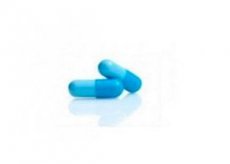Medical expert of the article
New publications
Preparations
Isophone
Last reviewed: 03.07.2025

All iLive content is medically reviewed or fact checked to ensure as much factual accuracy as possible.
We have strict sourcing guidelines and only link to reputable media sites, academic research institutions and, whenever possible, medically peer reviewed studies. Note that the numbers in parentheses ([1], [2], etc.) are clickable links to these studies.
If you feel that any of our content is inaccurate, out-of-date, or otherwise questionable, please select it and press Ctrl + Enter.

Isophon is a medicine with anti-tuberculosis properties.
 [ 1 ]
[ 1 ]
Indications Isophone
It is indicated for combination therapy of tuberculosis (children aged 5-16 years, as well as adults), as well as leprosy and other mycobacterioses.
The drug is most effective in the primary stages of tuberculosis, as well as other non-specific pathologies that develop with immunodeficiency. It can be prescribed to people with isoniazid intolerance.
It is used in combination with other antimycobacterial drugs, and also, if necessary, with broad-spectrum antibiotics, chemotherapeutic drugs, and immunomodulators.
Isophon is sometimes used as a prophylactic against tuberculosis (especially for children).
Release form
Available in capsules of 100 (No. 50) or 200 mg (No. 20) in glass jars. Also capsules in blisters No. 10 (100 mg), 5 strips per package or No. 10 (200 mg), 2 blisters per package.
Pharmacodynamics
Isophon is an antimycobacterial drug that has immunotropic properties.
The drug has antimycobacterial activity against microorganisms that provoke the development of leprosy and tuberculosis, as well as other mycobacteria and individual pathogens of pathologies that are transmitted through sexual contact (chlamydia).
The immunotropic effect of the drug allows stimulating the immune system, influencing each of its three links. This is extremely important in the treatment of mycobacteriosis (leprosy with tuberculosis), which often develops with immunodeficiencies. The drug has no sensitizing or irritating effect, it does not affect fibrinolytic activity or blood clotting rate.
Pharmacokinetics
After internal administration, the peak value is observed after 6 hours. It remains at the peak level for the next 12-18 hours, gradually decreasing. This makes it possible to take the drug twice a day. The bioavailability value is 50%, and the main route of excretion is the gastrointestinal tract.
Dosing and administration
The medicine is taken orally - the adult dosage (single) is 400-800 mg, but 800-1600 mg of the drug can be taken per day. Children aged 5-16 years are prescribed capsules in the amount of 10-12 mg / kg, but no more than 600 mg can be taken once per day. The size of the daily and course dosages is determined by the doctor, for each patient separately (this depends on the characteristics of the pathology and its severity).
The therapeutic course for the primary stages of leprosy or tuberculosis lasts 1-6 months. If the disease is chronic, it can be extended to 1 year. The daily dosage (800 mg) is recommended to be taken in the morning, without dividing into 2 times, but at the same time, higher dosages prescribed by the doctor are allowed to be divided into morning and evening intake. The capsules should be taken half an hour before meals or 2 hours after them.
Use Isophone during pregnancy
Since there is no clinical data on the safety of using the drug in pregnant women, it is prohibited to prescribe it during this period.
Side effects Isophone
In general, the drug is well tolerated, but in some cases headaches or dizziness may occur. Such reactions quickly disappear without any additional treatment.
 [ 12 ]
[ 12 ]
Overdose
An overdose of the drug may result in a coma, and in addition, signs of peripheral neuritis may appear.
The drug has no specific antidote. Therapy is aimed at relieving symptoms - gastric lavage, activated carbon. Hemodialysis will be effective.
 [ 15 ]
[ 15 ]
Interactions with other drugs
Izofon enhances the properties of antibiotics, corticosteroids, as well as anti-inflammatory and antimycobacterial drugs. The drug is effective when combined with antibiotics such as aminoglycosides, as well as cephalosporins with macrolides. In addition, it is allowed to combine it with immunomodulators, as well as other antifungal and chemotherapeutic drugs.
Storage conditions
The medicine is stored in the conditions required for medicines, inaccessible to sunlight and children. Temperature conditions are 15-25 o C.
Shelf life
Isophon is permitted to be used for 2 years from the date of release of the drug.
Attention!
To simplify the perception of information, this instruction for use of the drug "Isophone" translated and presented in a special form on the basis of the official instructions for medical use of the drug. Before use read the annotation that came directly to medicines.
Description provided for informational purposes and is not a guide to self-healing. The need for this drug, the purpose of the treatment regimen, methods and dose of the drug is determined solely by the attending physician. Self-medication is dangerous for your health.

